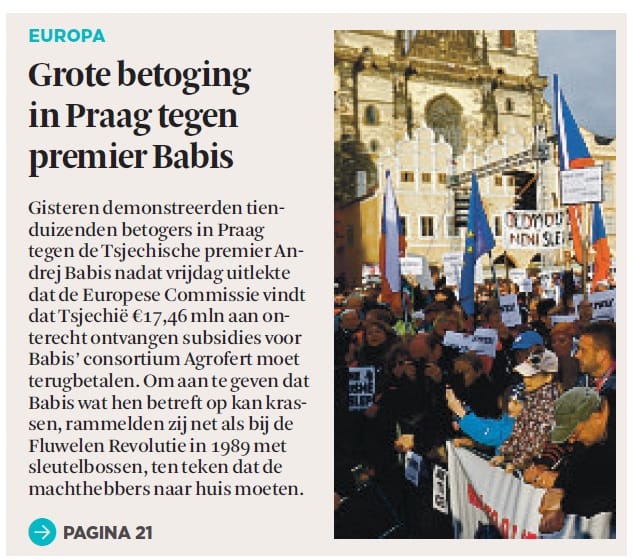Sobotka’s Gambit; is the KSCM Mature Enough to make a Viable Government Partner?

- In a recent interview with Hospodarske Noviny, Czech Prime Minister Bohuslav Sobotka said that he is open to cooperation between the Social Democrats (CSSD) and the Communists (KSCM) on government level. Up until now, this has been hindered by the so-called Bohumin resolution of 1995. The resolution was put in place to ensure that the CSSD would not attempt to create a government coalition with the Communist party, which for obvious historical reasons was perceived to be extremist and undemocratic.
- However, now it seems as if the tides are turning; Sobotka does not wish for the CSSD to abide by the resolution any longer, calling it obsolete and outdated. In the interview with HN, he pointed out that the two parties have already been working successfully together in municipalities and on a regional level for many years. Building on these experiences, there is no reason to believe that the two cannot cooperate equally well in a coalition at the national level.
- The Czech President, Milos Zeman, has stated that he would have no reservations about appointing a government partly made up of Communists, if the election results would imply a popular wish for such. The deputy head of the KSCM, Jiri Dolejs, welcomes this development, and is glad to see that the parties on the left wing are finally attempting to unite against the right-wing parties. Thus, after the general election in October 2017, the Czech Republic could for the first time since 1989 have Communists in government.
However, it is starting to dawn on Sobotka that he might not be elected for a second term as Prime Minister, and that the key to gaining the votes he desperately needs could be found in cooperation with the KSCM. He has to seriously consider this possibility, because at the moment, the CSSD leader is in a dire position; him and his party are steadily losing popularity, and his chances of winning the upcoming election seem to be diminishing.
If the CSSD decided to cooperate with the KSCM in government, it could not just scare off the party’s more liberal voters, but also potentially cause it to weaken its ties with the West and undermine the legitimacy of the party altogether. More worryingly, such cooperation on government level could create confusion about the Czech Republic’s official stance on important international issues such the war in Ukraine, for which the KSCM incidentally blames the Ukrainians themselves.
Only when the KSCM comes to terms with the fact that the Czech Republic must continue to be a Western liberal democracy can it hope to gain any actual political influence in the country. There has never been a better chance for the KSCM to reinvent itself as a viable democratic and parliamentary player and force for meaningful change.
Celý článek, v anglickém jazyce, je dostupný na serveru BlogActiv.eu.




